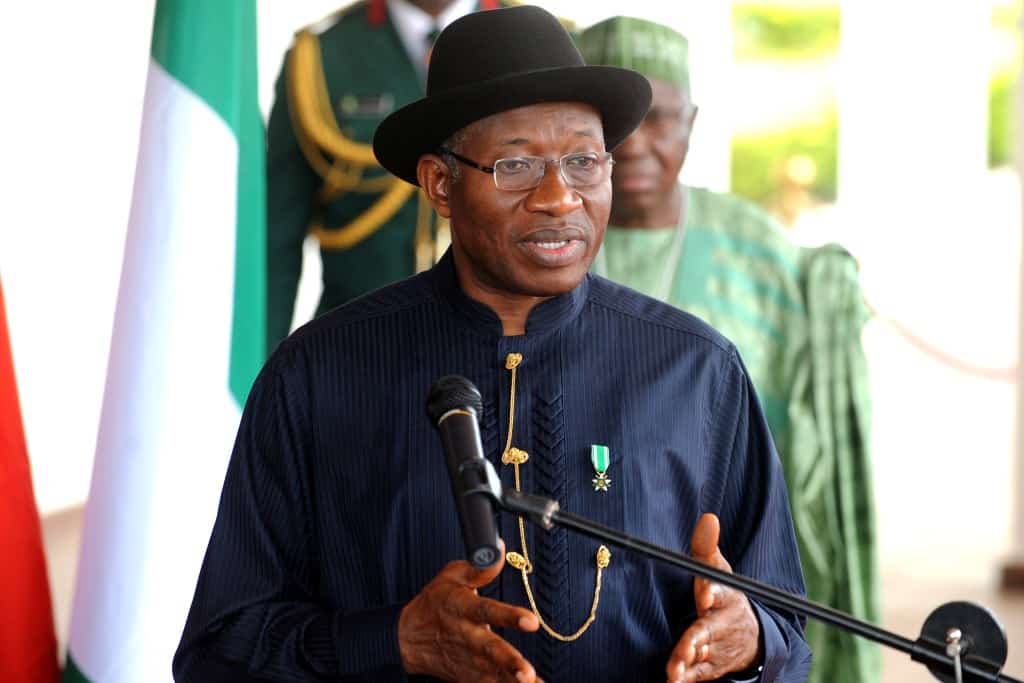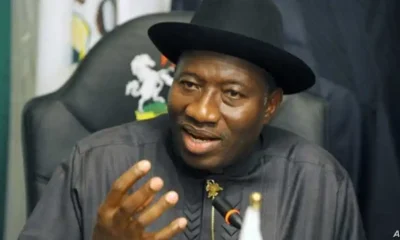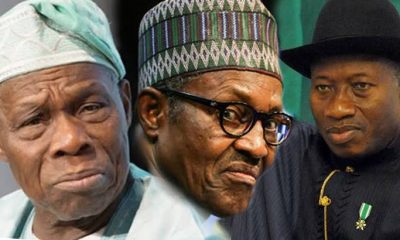Politics
Ballots, Not Courts Should Decide Election Winners – Jonathan

Former Nigeria President, Goodluck Jonathan, on Monday, said ballots and not court cases should determine election winners in the country.
Jonathan stated this in Abuja when he visited the digital pan-African news network, the TOS TV network, led by Ms Osasu Igbinedion.
He called on youths in the country to get involved in politics, adding that politics controls everything around the world and they should not be left out.
“Ballot papers should be the basis of selecting political officeholders. If it is the judiciary that should select them then we are not yet there.”
“I am not saying the judiciary is not doing well but our laws should suppress the idea of our judiciary returning candidates. The ballots should decide who occupies the councillorship seat up to the presidency; that is democracy.”
The former President further stated that his government gave women and youths the opportunity to take part in politics, he noted that is the avenue for them to influence government programmes, policies and effect changes.
He condemned money politics and criticised politicians using gifts to sway voters during the elections.
According to him, there should be punitive measures against those who indulge in such unwholesome act.
Jonathan added that inducing voters with money and foodstuff on election day in some African countries is an offence.
He said, “The problem we have in Nigeria is the use of money to induce some voters. Compared to other African countries, we spend too much money here. Probably, we need to review our laws because I have observed a number of elections in African countries.
“For instance, in Tanzania, a candidate does not need to print his name on matchbox or any items to woo voters. If you do that, they say that you are inducing the electorate. It is against their laws.
“But here if somebody is contesting elections, you buy bags of rice, wrappers, and all manner of items to induce the electorate. Ordinarily, our electoral laws are supposed to frown on such practices.
“If you do that, you are supposed to be disqualified from contesting in the election. So, these are the things that make our elections expensive. I think if the young people are willing, things should begin to change.”
He, however, admitted that money was required to offset campaign, logistics and other legitimate costs during the electioneering.










